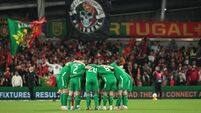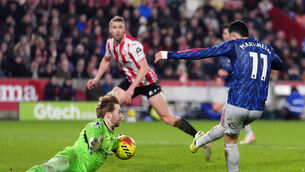An audience with Lech Walesa
There they beat Piast Gliwice 2-1 to complete a remarkable triumph. In any environment such a shock success would have been extraordinary, but it was particularly so for Gdansk at that time. Solidarity, the pro-democracy movement based in the shipyards and led by the union boss Lech Walesa was at its height, with martial law imposed by the Communist authorities to try to maintain order.
I met Walesa at his office in Gdansk last year. He is 68 now, his hair white and his face creased. The moustache remains, though, bushy and white and bristling with intensity. Although he was going into hospital for a minor operation the day after our interview, he still buzzed with charisma and vitality. He admits he is no great football fan, but equally he has no doubt about the importance of football to his country’s development. “We had to do our best to get the revolution going,” he explained. “We had to build up the foundations to get the fight on. Sport was just one of the ways we met each other and found out how much we had in common. We became much closer thanks to football and we relied on these relationships. Football was very important.”














